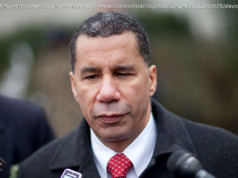Nicaraguan President Daniel Ortega has cemented the authoritarian reputation of his government by shuttering the offices of some of the few remaining resonant voices of dissent and expelling the international monitors documenting his government’s alleged crimes.
MANAGUA, Nicaragua — In barely a week’s time, Nicaraguan President Daniel Ortega has cemented the authoritarian reputation of his government by shuttering the offices of some of the few remaining resonant voices of dissent and expelling the international monitors documenting his government’s alleged crimes.
The heavy-handed raids on the country’s most prominent nongovernmental organizations and the seizure of the offices of the independent news outlets Confidencial and 100% Noticias left a clear message that no one — especially former Sandinista comrades — was safe from a crackdown on dissent following a wave of protests that increasingly aimed at pushing the 73-year-old president from power.
At least 325 people have been killed since protests erupted in mid-April and were violently suppressed. Some 565 people have been jailed, according to the Nicaraguan Human Rights Center, which itself was raided. Many of those held face terrorism charges that carry decades-long sentences. Thousands have fled the country in self-imposed exile.
“All Nicaraguans are vulnerable to the possibility that they fabricate charges from the laws they (the government) invented,” the founder of Confidencial, Carlos Fernando Chamorro, said in front of Managua’s courthouse. “No one is safe here. The law protects no one because in Nicaragua there is not rule of law.”
Chamorro ran the Sandinistas’ newspaper La Barricada for years and his mother Violeta Barrios de Chamorro was initially part of the Sandinista ruling junta when it gained power. But she later split and eventually ran for president, defeating Ortega in 1990.
Vice President Rosario Murillo — who is Ortega’s wife and who also controls the government’s communications — did not grant a request for an interview with herself or Ortega. But at an event with police last week, she made a thinly veiled reference to Chamorro and other “traitors.”
“Disgracefully in our country we have known names that repeat throughout history in their eagerness to betray the country,” Murillo said. “We are going to strengthen the peace and security every day. Here traitors to the country have no place.”
___
The new wave of crackdowns began a little over a week ago when Ortega loyalists in congress stripped nine organizations of their legal status, alleging they supported what the government has called a coup attempt, a reference to the protests.
Police raided the groups’ offices the night of Dec. 13, hauling off computers and reams of documents. They returned the following night to occupy their buildings.
Police toting rifles could be seen watching television inside the offices of Confidencial while its staff kept its website updated from hotel rooms, their homes and eventually a secret location where they re-established their newsroom.
“The issue is that the institutions that he’s going after are symbolic of the strength of civil society,” said Manuel Orozco, a senior associate at The Inter-American Dialogue in Washington. Ortega thought he could maintain control through the political parties, but this opposition movement has come from civil society.
When Chamorro went to police headquarters on Dec. 15 to ask to see what order had allowed the seizure of his offices, he and his staff were pushed away by riot police who punched and kicked at least one of his reporters.






